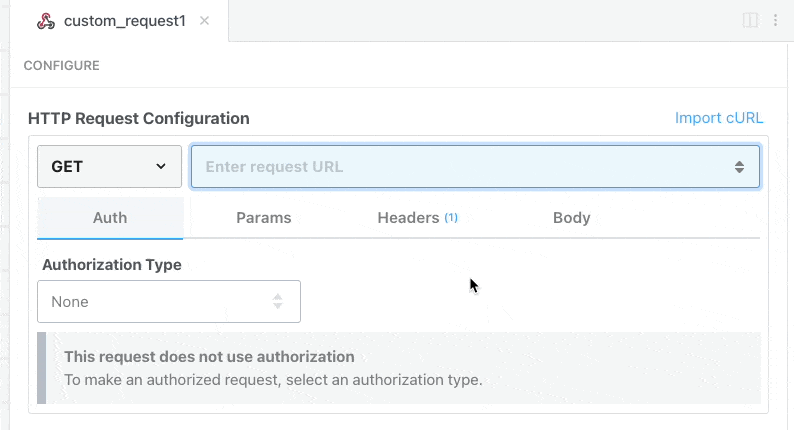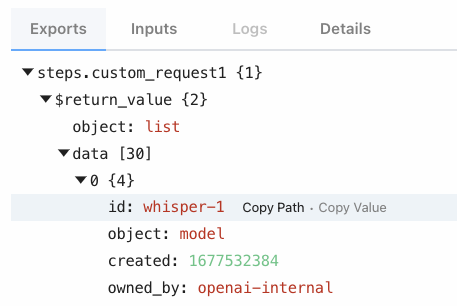What do you want to automate
with HTTP / Webhook and OpenAI (ChatGPT)?
Prompt, edit and deploy AI agents that connect to HTTP / Webhook, OpenAI (ChatGPT) and 3,000+ other apps in seconds.
Trusted by 1,000,000+ developers from startups to Fortune 500 companies
Popular Ways to Connect HTTP / Webhook with OpenAI (ChatGPT)#
Popular HTTP / Webhook and OpenAI (ChatGPT) Triggers#
Get a URL and emit the full HTTP event on every request (including headers and query parameters). You can also configure the HTTP response code, body, and more.
Get a URL and emit the HTTP body as an event on every request
Emit new event when the content of the URL changes.
Emit new event when a new batch is completed in OpenAI. See the documentation
Emit new event when a new file is created in OpenAI. See the documentation
Popular HTTP / Webhook and OpenAI (ChatGPT) Actions#
The Chat API, using the gpt-3.5-turbo or gpt-4 model. See the documentation
Chat using the web search tool. See the documentation
Send an HTTP request using any method and URL. Optionally configure query string parameters, headers, and basic auth.
Chat with your models and allow them to invoke functions. Optionally, you can build and invoke workflows as functions. See the documentation
Send an HTTP GET request to any URL. Optionally configure query string parameters, headers and basic auth.
Overview of HTTP / Webhook#
Build, test, and send HTTP requests without code using your Pipedream workflows. The HTTP / Webhook action is a tool to build HTTP requests with a Postman-like graphical interface.

Point and click HTTP requests
Define the target URL, HTTP verb, headers, query parameters, and payload body without writing custom code.

Focus on integrating, not authenticating
This action can also use your connected accounts with third-party APIs. Selecting an integrated app will automatically update the request’s headers to authenticate with the app properly, and even inject your token dynamically.

Pipedream integrates with thousands of APIs, but if you can’t find a Pipedream integration simply use Environment Variables in your request headers to authenticate with.
Compatible with no code actions or Node.js and Python
The HTTP/Webhook action exports HTTP response data for use in subsequent workflow steps, enabling easy data transformation, further API calls, database storage, and more.
Response data is available for both coded (Node.js, Python) and no-code steps within your workflow.

Connect HTTP / Webhook#
// To use any npm package on Pipedream, just import it
import axios from "axios"
export default defineComponent({
async run({ steps, $ }) {
const { data } = await axios({
method: "GET",
url: "https://pokeapi.co/api/v2/pokemon/charizard",
})
return data.species
},
})
Overview of OpenAI (ChatGPT)#
OpenAI provides a suite of powerful AI models through its API, enabling developers to integrate advanced natural language processing and generative capabilities into their applications. Here’s an overview of the services offered by OpenAI's API:
- Web search
- Function calling
- Text generation
- Embeddings
- Fine-tuning
- Image Generation
- Vision
- Text-to-Speech
- Speech-to-Text
Use Python or Node.js code to make fully authenticated API requests with your OpenAI account:
Connect OpenAI (ChatGPT)#
import { axios } from "@pipedream/platform"
export default defineComponent({
props: {
openai: {
type: "app",
app: "openai",
}
},
async run({steps, $}) {
return await axios($, {
url: `https://api.openai.com/v1/models`,
headers: {
Authorization: `Bearer ${this.openai.$auth.api_key}`,
},
})
},
})
Community Posts#

